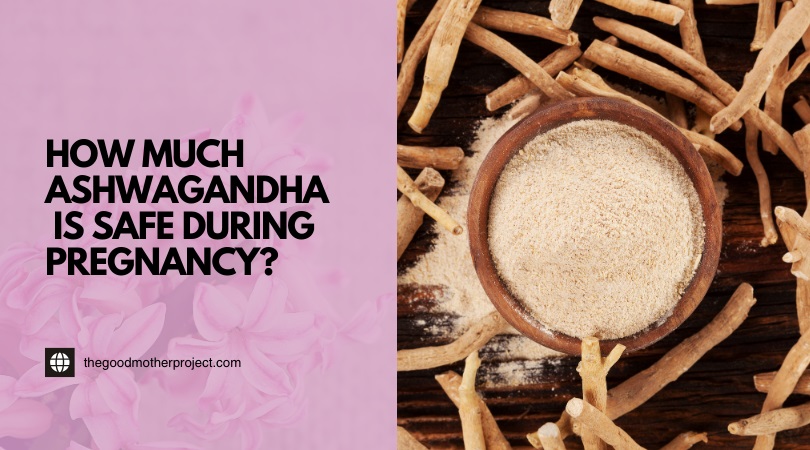Last Updated on January 6, 2025
Pregnant women should avoid Ashwagandha due to potential risks. Always consult a healthcare provider before taking any supplements during pregnancy.
Ashwagandha, an adaptogenic herb, has gained popularity for its stress-relieving properties and health benefits. Traditionally used in Ayurvedic medicine, it may help improve energy levels and overall well-being. However, its safety during pregnancy remains a topic of concern. Many expectant mothers seek natural remedies to alleviate stress and anxiety, but not all are safe for the developing fetus.
Understanding the implications of using Ashwagandha during this critical period is essential. It’s vital to prioritize the health of both mother and baby. Always seek professional advice before making any decisions regarding herbal supplements during pregnancy.
The Ashwagandha Debate: Safe For Pregnant Women?
Ashwagandha is a popular herb in traditional medicine. Many people use it for stress relief and overall health. However, during pregnancy, the safety of ashwagandha raises concerns. This debate continues among health experts and expectant mothers.
Traditional Uses Vs. Modern Caution
In traditional Ayurvedic medicine, ashwagandha serves multiple purposes:
- Boosts energy levels
- Reduces stress and anxiety
- Supports overall health
Despite these benefits, modern research questions its safety for pregnant women. Some studies suggest it may:
- Influence hormone levels
- Cause uterine contractions
These potential risks lead many healthcare professionals to recommend caution. Pregnant women should consult their doctors before using ashwagandha.
What Experts Say
Health experts have mixed opinions on ashwagandha. Some key points include:
| Expert Opinion | Notes |
|---|---|
| Ayurvedic Practitioners | May recommend it for pregnancy-related stress. |
| Obstetricians | Often advise against use due to lack of research. |
| Naturopaths | Support its use but suggest monitoring. |
Many experts agree that safety remains uncertain. Pregnant women should prioritize their health and that of their baby. Always discuss any herbal supplements with a healthcare provider.
Navigating The Dosage Dilemma
Pregnancy brings many changes. Finding safe herbal supplements is crucial. Ashwagandha is popular for its benefits. Yet, its dosage during pregnancy raises concerns. Understanding the right amount is essential for safety.
Recommended Amounts
The right dosage of Ashwagandha varies. Pregnant women should be cautious. Here are recommended amounts:
| Trimester | Recommended Dosage (mg) |
|---|---|
| First Trimester | Avoid use |
| Second Trimester | 300 – 600 |
| Third Trimester | 300 |
Always consult a healthcare provider. Individual needs may vary. Start with the lowest dose. Monitor how your body reacts.
Signs Of Overdosage
- Upset stomach
- Diarrhea
- Nausea
- Drowsiness
- Headaches
Seek medical help immediately if you experience severe symptoms. Safety during pregnancy is vital. Always prioritize health for you and your baby.
Potential Risks And Considerations
Understanding the potential risks of ashwagandha during pregnancy is crucial. Pregnant women must prioritize safety. The effects on fetal development are not fully understood. Caution is always recommended.
Interactions With Other Medications
Ashwagandha can interact with various medications. Here are some key interactions to be aware of:
| Medication Type | Potential Interaction |
|---|---|
| Antidepressants | May increase sedative effects. |
| Blood Pressure Medications | Can lower blood pressure further. |
| Thyroid Medications | May affect thyroid hormone levels. |
Consult a healthcare provider before combining ashwagandha with any medication.
Monitoring And Managing Side Effects
Side effects are possible with ashwagandha use. Common side effects include:
- Stomach upset
- Diarrhea
- Nausea
- Headaches
Monitor any unusual symptoms. Report these to a healthcare provider immediately.
Some tips for managing side effects:
- Start with a low dose.
- Take it with food.
- Stay hydrated.
Always prioritize health and safety during pregnancy. Seek professional guidance before using ashwagandha.
Frequently Asked Questions
How Much Ashwagandha Is Safe During Pregnancy?
Pregnant women should avoid ashwagandha, as its safety is not well-established.
Is Ashwagandha Safe For Breastfeeding Mothers?
Safety during breastfeeding is unclear; consult a healthcare provider before use.
What Are The Side Effects Of Ashwagandha?
Common side effects include stomach upset, diarrhea, and nausea, particularly in high doses.
Can Ashwagandha Cause Miscarriage?
Some studies suggest potential risks; consult with a doctor before taking it during pregnancy.
What Alternatives To Ashwagandha Are Safe?
Consider prenatal vitamins and herbal teas like ginger or peppermint, but consult a healthcare professional first.
Conclusion
Pregnancy requires careful consideration of supplements like ashwagandha. While it offers potential benefits, safety is paramount. Always consult your healthcare provider before adding any new supplement to your routine. Prioritizing your health and your baby’s well-being is essential. Make informed choices for a healthy pregnancy journey.








